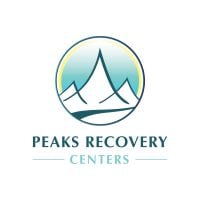El Paso County Division of Detoxification and Substance Abuse
Drug Rehab Center in Colorado Springs, Colorado
The El Paso County Division of Detoxification and Substance Abuse offers a comprehensive drug rehab program that includes medical detoxification, individual and group counseling, educational classes, vocational support, recreational activities, and residential levels of care, aimed at providing safe and effective care and support for individuals struggling with addiction.
Multiple patients have reported El Paso County Division of Detoxification and Substance Abuse as permanently closed.
Research other rehabs in Colorado Springs, Colorado, or get help finding an open facility.
About El Paso County Division of Detoxification and Substance Abuse in Colorado
El Paso County Division of Detoxification and Substance Abuse is a specialized addiction treatment facility located in Colorado Springs, Colorado. It is operated by the County Health and Human Services Department as part of their Substance Abuse and Mental Health Division. This facility provides outpatient and inpatient treatment for individuals struggling with alcohol, opioid, and other drug addiction. Detoxification, drug rehabilitation, inpatient, sober-living and residential levels of care are available, tailored to meet the needs of each individual.
El Paso County Division of Detoxification and Substance Abuse offers professional and comprehensive addiction and substance abuse services. All services are designed to be evidence-based and are properly monitored to ensure quality care. The team of certified therapists and counselors offer personalized care and support to help individuals overcome their addiction and achieve lasting sobriety. Furthermore, The facility is certified by the Colorado Department of Human Services and accredited by The Joint Commission on Accreditation of Healthcare Organizations.
Genders
Ages
Modality
Additional
Conditions and Issues Treated
Some addicts can benefit from substance abuse treatment, which is designed to help them become and remain sober without the use of medications. These programs are typically used by those struggling with drugs like marijuana or hallucinogens. However, they might be beneficial for those with a co-occurring mental health disorder like schizophrenia, major depression or bipolar disorder.
During this type of treatment, the addict will meet with therapists and other professionals on a regular basis to learn coping skills and healthy ways to deal with their addiction and mental health disorder.
Treatment programs often combine medications with counseling, support groups and even medical services like those found in hospitals or doctor’s offices. There are also detoxification services that addicts can use to get sober and avoid severe withdrawal symptoms.
Opioids are a group of drugs that include substances such as heroin, morphine, and oxycodone. These drugs activate opioid receptors in the brain, which produce pleasurable feelings. Opioid addiction occurs when drugs are abused at increasing rates or increasing amounts because the body becomes tolerant of them.
Opioid addiction is typically diagnosed when drug abuse becomes a typical behavior that interferes with an individual’s ability to function daily. The use of the substance results in consequences like legal problems.
Treatment for opioid addiction varies depending on each individual’s needs. Some treatments focus on replacing opioids with other drugs that have similar effects of reducing withdrawal symptoms. Other treatments aim to reduce the risk of relapse by providing psychological support or using more natural methods.
Levels of Care Offered
This center offers a variety of custom treatment tailored to individual recovery. Currently available are Detox, Drug Rehab, Inpatient, Residential, Sober-Living / Half-Way, with additional therapies available as listed below.
Detox, or detoxification, is the method of weaning a person’s body from the toxic substance(s) they have abused. This is a slow process under medical supervision and one that should occur for almost all individuals. As detox can cause medical complications, it should always be performed by experienced medical professionals in a safe setting.
Inpatient rehab means you live there while your addiction or co-occurring disorder is treated. Prescribed medications are used along with counseling.
This type of rehabilitation provides a drug-free environment for people who struggle with chronic/long-term addiction (or their own home). Jobs or school can be put on hold until after the stay to focus solely on recovery.
Sober Living Homes are an option for those who have completed a treatment program within the past several months. However, it isn’t advisable to use this as a permanent living arrangement because it can lead to a relapse .
The goal of a sober living home is to provide a supportive environment for recovering addicts so they don’t need to return to their previous lifestyles. The homes will not accept residents who are still using drugs or alcohol, and those living in the house must follow a set of rules dictating how they should behave to avoid relapsing.
Residential treatment programs are those that offer housing and meals in addition to substance abuse treatment. Rehab facilities that offer residential treatment allow patients to focus solely on recovery, in an environment totally separate from their lives. Some rehab centers specialize in short-term residential treatment (a few days to a week or two), while others solely provide treatment on a long-term basis (several weeks to months). Some offer both, and tailor treatment to the patient’s individual requirements.
Therapies & Programs
During individual therapy at El Paso County Division of Detoxification and Substance Abuse in , the person in recovery meets with a therapist one on one to go over their situation and learn from past mistakes. The counselor or therapist will use this time to address the causes of addiction, triggers, and any mental issue or dual diagnosis. They will also address aftercare plans, giving them the best chances of long-term sobriety.
This therapeutic process is very intense and challenging to go through. Some clients may find it easier to open up with someone apart from their family or loved ones who understand their struggles and experience with addiction.
Addicts in Colorado Springs, CO can find support in group therapy at El Paso County Division of Detoxification and Substance Abuse by finding peers who understand their situation and being held accountable. They also learn to develop faith, understanding, and insight into their addiction through shared conversations.
Group Therapy is employed by drug treatment centers to provide the recovering addict with a platform to talk about their feelings and experiences. It also provides for an opportunity to learn from other addicts who have successfully overcome their addiction. It is recommended that all group members be recovering addicts for this type of therapy to work.
Cognitive Behavioral Therapy (CBT) helps addicts comprehend the causes of their substance abuse and the consequences that follow. The treatment’s goal is to help addicts gain self-control and maintain abstinence from drugs and alcohol over the long term. Through CBT, clients learn to recognize and avoid high-risk situations and cope with challenging situations when they arise.
Payment Options Accepted
For specific insurance or payment methods please contact us.
Additional Details
Specifics, location, and helpful extra information.
Colorado Springs, Colorado 80906 Phone Number(719) 390-2046 Meta DetailsUpdated November 25, 2023
Staff Verified
El Paso County Division of Detoxification and Substance Abuse Patient Reviews
There are no reviews yet. Be the first one to write one.
Colorado Springs, Colorado Addiction Information
The Centennial State has slipped to a ranking of 12th in the country for drug abuse. Each year around 24% of the state's population uses illegal drugs while nearly 5% of its population abuses alcohol. Substance-related deaths in Colorado were responsible for 15.12% between 2008 and 2017. Fortunately, Colorado drug and alcohol addiction treatment are available to help a person overcome addiction.
10.6% of Colorado Springs adults reported binge drinking and 11.7% of adults reported using illicit drugs. From 2006 to 2016, the number of drug overdose deaths more than tripled in Colorado Springs. Drug addiction can lead to a wide variety of problems, including crime, violence, and health issues. It's important to find a facility that offers the level of care you need to give yourself the best chance for success.
Treatment in Nearby Cities
- Dacono, CO (90.1 mi.)
- Granby, CO (109.1 mi.)
- Telluride, CO (174.8 mi.)
- Canon City, CO (33.7 mi.)
- Rangely, CO (233.1 mi.)
Centers near El Paso County Division of Detoxification and Substance Abuse
The facility name, logo and brand are the property and registered trademarks of El Paso County Division of Detoxification and Substance Abuse, and are being used for identification and informational purposes only. Use of these names, logos and brands shall not imply endorsement. RehabNow.org is not affiliated with or sponsored by El Paso County Division of Detoxification and Substance Abuse.







